I believe gender equality is a fundamental right, and the basis of a well-balanced and positively growing democratic society. It is really easy to look away women discrimination. To lock ourselves in the lucky bubble some of us have been born in, not facing our daily experiences of women discrimination; because at least we were given a better position that many other women across the globe. But not a single country has achieved gender equality, not a single one.
Pink blankets are for females, blue blankets are for males. Boys go to the toilet on one side, girls on the opposite. Men play ice-hockey, women are the “ice-girls”. Shaving and make-up are their daily routines, but men avoid those. Nursing is for females, engineering is for males. They are the heroes, but “she-roes” are inexistent…
We, as society, establish iron curtains between men and women. We interiorize sexist beliefs and build walls out of it. Walls that frequently, boys and girls are frequently unable to surpass. From the color of our baby blankets, to the priority of hiring men versus women, unequal salaries for men and women in the same job position etc. to the determination that girls do not deserve an education, that women have to stay at home and raise the children, unable to be independent from men, that they can be subject to torture, sexual abuse and domestic violence by their bosses, husbands or even members of their own family.
Why are women still unequal to men? From here to Pakistan, Italy, China or Burkina Faso, in different scales, but why being born women darkens my future?
Why girls (female fetuses) are considered inferior to boys (male fetuses) in pregnancies, especially in parts of India and South Asia? Why 30% of pregnancies identified as female fetuses would be terminated in the Republic of Korea – versus a 10% of abortion in case of male fetuses?
Why do 5,000 women die every year as a victim of “dowry deaths”? Why do the groom’s family torture the bride if she cannot meet the financial demands of her dowry? Why would you attack somebody because of economic differences?
Why do “honor killings” continue to happen in Pakistan, Turkey, Jordan, Syria, Egypt, Lebanon, Iran, Yemen, Morocco etc.? Why a woman would be killed for acts that are perceived as bringing shame to their families – including adultery or being a victim of rape? Why any woman or man would be put to death?
Why are women subject to torture, harassment and sexual abuse by men? Why one in four men in South Africa reported having had sex with a woman against her will by the time he was 18 years old? Why did 27,000 women and girls experience intimate partner violence in one year in Colombia, with 74% of these being underage girls? Why would men have a sexual dominance, or any kind of dominance over women?
Why female genital mutilation (FGM) is still taking place? Why 97% of the women in Egypt, 92% in Mali, 77% in Burkina Faso or 90% in North Sudan have undergone FGM? Why are 3 million girls at risk of undergoing FGM every year in Africa? Why would you have power over the bodies of women?
Why child marriage does is still so present in our world? Why 40% of the women in Nepal are married when they are 15? Why approximately 14 million women and girls between the ages of 15 and 19 have to give birth each year, frequently harming their health and personal development?[1]
“Why is this world such an uncomfortable one?” [2]
This is the reality today, 8th of March, 2015, on the International Women’s Day. The sad reality that the atrocities in gender discrimination greatly surpass the significant efforts of courageous individuals to solve the problem.
I identify myself with Ellen Johnson Sirleaf’s claim: “If your dreams don’t scare you, they aren’t big enough”. I even encourage the kids and youngsters I interact with to enter this mindset. But what is the point of dreaming big if society has already established the limits of your dreams? Depending on where you are born, the wires of your dreams have been set, restricting you to a bigger or smaller area to develop your future. They can tell you to dream big. You can dream of becoming a doctor, an astronaut or an architect. But somebody has to give you the opportunity to have an education first.
Fortunately, there are so many inspiring, passionate and dedicated individuals that are devoting all their time, energy and efforts to fight for this cause. But there are still so many women without access to education, so many women subjected to men dominance, to sexual abuse, so many established societies on the oblivious belief that women are inferior to men. On this relevant day, I want to contribute to recognizing the impactful progress made by women in society.
The truth is that I was researching on this issue for our weekly “News Crew” presentation in Up with People – along with my partners Ben and Weiran, we present the world’s breaking news to the Cast in the most creative, thought-provoking and engaging way we can. Five quick minutes was the time devoted to one of this week’s topics: “Influence of women in the fight for gender discrimination”. Or to put it another way: the “Footsteps of a girl” , one of the songs in our show. This only led me to a really late and an endless document in front of me full of inspiring quotes, impactful actions and courageous personalities; contrasting an ever-lasting list of terrible stories involving gender discrimination.
Leymah Gbowee
Leymah travelled to Northern Liberia to look for a job a research assistant. Once there, she was hosted by a mother and her daughter. The young girl happened to be the only girl in the entire village who had made it to the ninth grade, constantly facing disapproval from their society. «You and your child will die poor” – they would say. «Leymah, take my daughter. I wish for her to be a nurse. Without any resources to accomplish the mom’s wish, Leymah had to say «No.”
“No” after “No”, the vision of the girls of every community Leymah went to disappeared just as volatile dreams. This happened again and again, until she refused to say no one more time. She created a space called the Young Girls Transformative Project. They go into rural communities and they create the space to “unlock intelligence, passion, commitment, focus”, to “unlock great leaders”. As Leymah Gbowee claims, “some of those girls who walked in the room very shy have taken bold steps, as young mothers, to go out there and advocate for the rights of other young women”.
This important step has been followed by many other challenging actions and campaigns to fight for the same purpose, and keep on going with the strenuous fight for gender equality: “Will you journey with me to help that girl, be it an African girl or an American girl or a Japanese girl, fulfill her wish, fulfill her dream, achieve that dream? Let’s journey together. Let’s journey together.”[3]
Manal Al Sharif
Manal Al Sharif is from Saudi Arabia, a country where “women are forced to be faceless, voiceless, and nameless” as she declares. One particular case is the prohibition for women to drive. She filmed a video while she was driving and uploaded it online. As she explained, “the struggle it’s not about driving a car, it’s about being in the driver’s seat of our destiny”. The fight has to start somewhere “we should stop asking when, and start taking action now to drive our own lives.”[4]
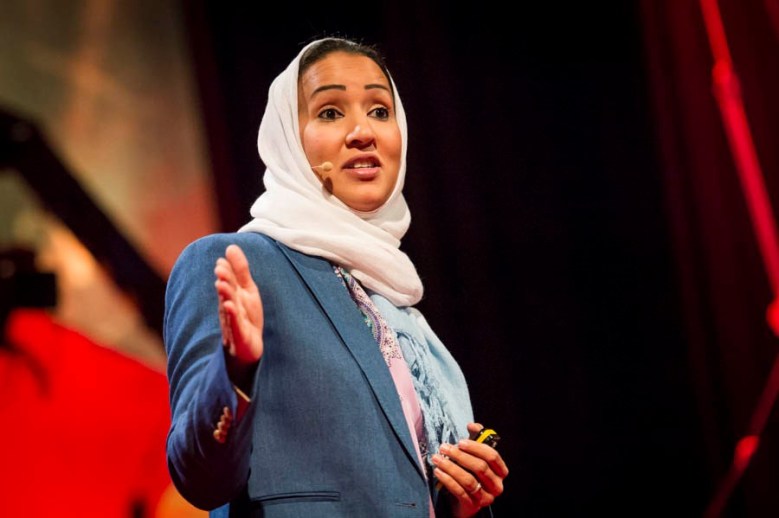
Emma Watson
Stop asking when, is the message we get across. “In my nervousness for this speech and in my moments of doubt I’ve told myself firmly – IF NOT ME, WHO? IF NOT NOW, WHEN? If you have similar doubts when opportunities are presented to you I hope those words might be helpful”[5] – expressed Emma Watson at the United Nations Headquarters, at a special event for the HeForShe campaign, which fights for the inclusion of men in the fight for equality.
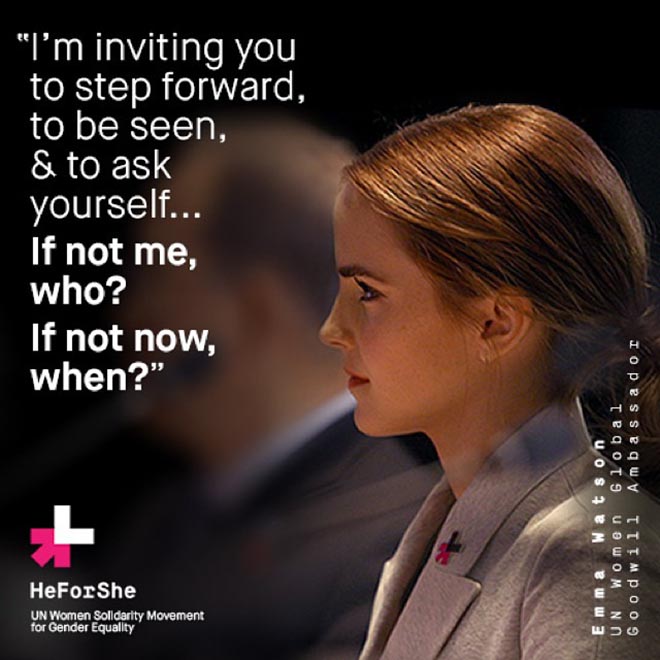
Malala
Stop asking when. Start cutting the wires that limit women’s dreams. At the age of 17, Pakistani girl Malala Yousafzai became the youngest ever Nobel Peace Prize winner last year. Since a very young age, Malala has stood for the girl’s rights to education, banned by extremist group the Taliban. At the age of 15, she was shot on the head for her campaign work in a schoolbus. Fortunately, she survived the attack. Fortunately, she is alive to keep her strength, power and courage running through us all and tearing down the bricks of inequality:
“Dear Friends, on the 9th of October 2012, the Taliban shot me on the left side of my forehead. They thought that the bullets would silence us. But they failed. And then, out of that silence came, thousands of voices. The terrorists thought that they would change our aims and stop our ambitions but nothing changed in my life except this: Weakness, fear and hopelessness died. Strength, power and courage was born. I am the same Malala. My ambitions are the same. My hopes are the same. My dreams are the same.”[6]
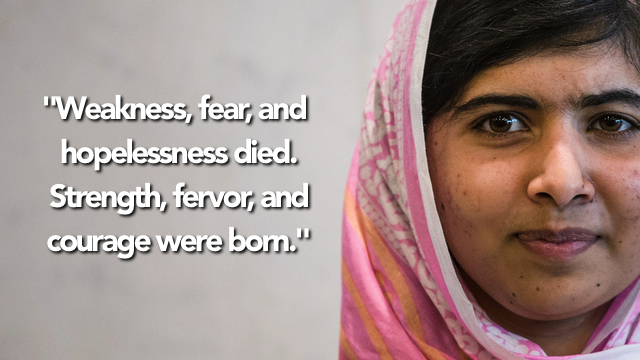
Every weekend I have the chance to sing for gender equality. Every weekend I have the chance to raise my voice, together with the voices of one hundred more people from every continent, and stare with fearless eyes to the audience of each single city we interact with. Every weekend a core of fire lightens up in my stomach, I feel the determination to do not look away, to do not settle and to raise both the ceiling and the floor to make a difference[7].
Let the strength and power and courage run through us all,
Let it break down every brick of every wall,
Because we don’t fear, we don’t fear a scar,
Let the voice of women be heard, through us all.
“Footsteps of a girl”
Up with People show: The Journey
[1] All the facts taken from: http://www.advocatesforyouth.org/publications/publications-a-z/1556-the-facts-gender-inequality-and-violence-against-women-and-girls-around-the-world
[2] Quote from Emma Watson’s speech about gender equality at the UN Headquarters for the special event that preceded the launching of the campaign “HeForShe”. Source: https://www.youtube.com/watch?v=p-iFl4qhBsE
[3] Quotes taken from Nobel Peace Prize winner Leymah Gbowee’s TED Talk: https://www.youtube.com/watch?v=QxkxcsrveLw
[4] Quotes taken from Manal Al Sharif’s speech “The Drive for Freedom” at the Oslo Freedom Forum in 2012: https://www.youtube.com/watch?v=0PXXNK-3zQ4
[5] Quote from Emma Watson’s speech about gender equality at the UN Headquarters for the special event that preceded the launching of the campaign “HeForShe”. Source: https://www.youtube.com/watch?v=p-iFl4qhBsE
[6] Quotes taken from Malala’s speech at the United Nations on 12 July 2013 (16th birthday and «Malala Day» at the UN): http://www.theguardian.com/commentisfree/2013/jul/12/malala-yousafzai-united-nations-education-speech-text
[7] Quote by Sheryl Sandberg, in Lean In: Women, Work and the Will to Lead.
[8] Entry’s cover picture:
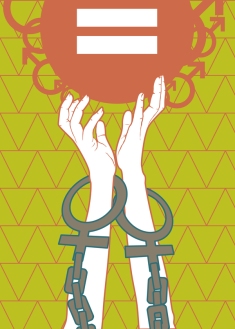
Picture taken from: https://www.behance.net/gallery/5169019/Poster-for-tomorrow-2012-Gender-equality
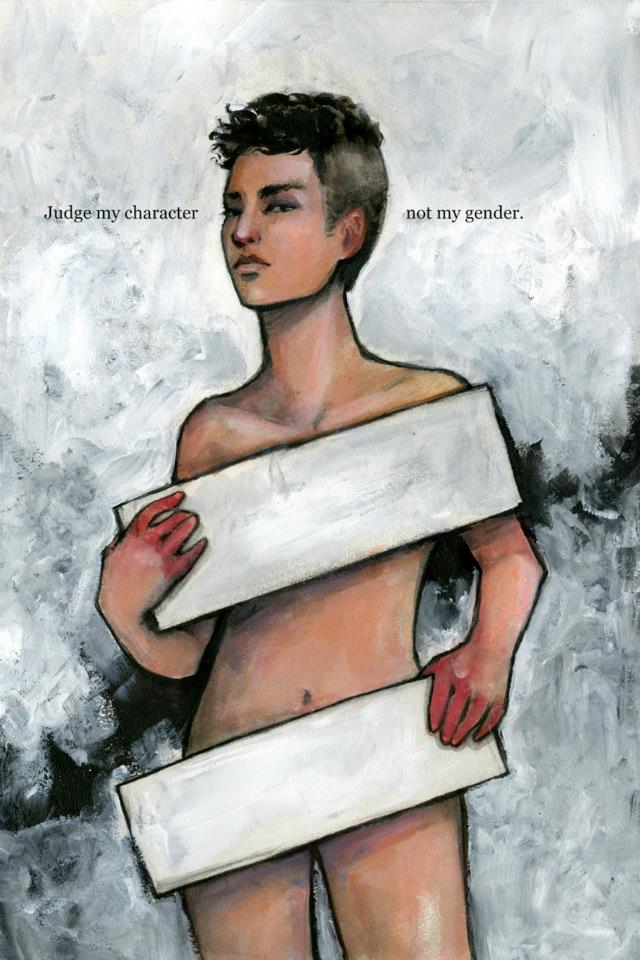
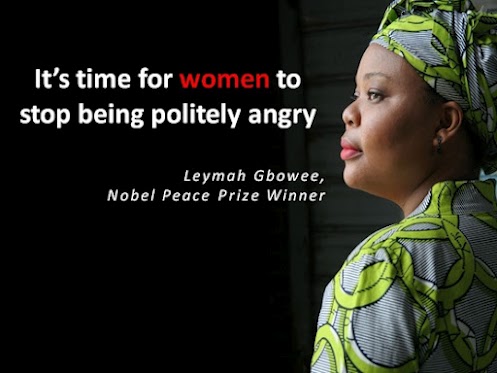
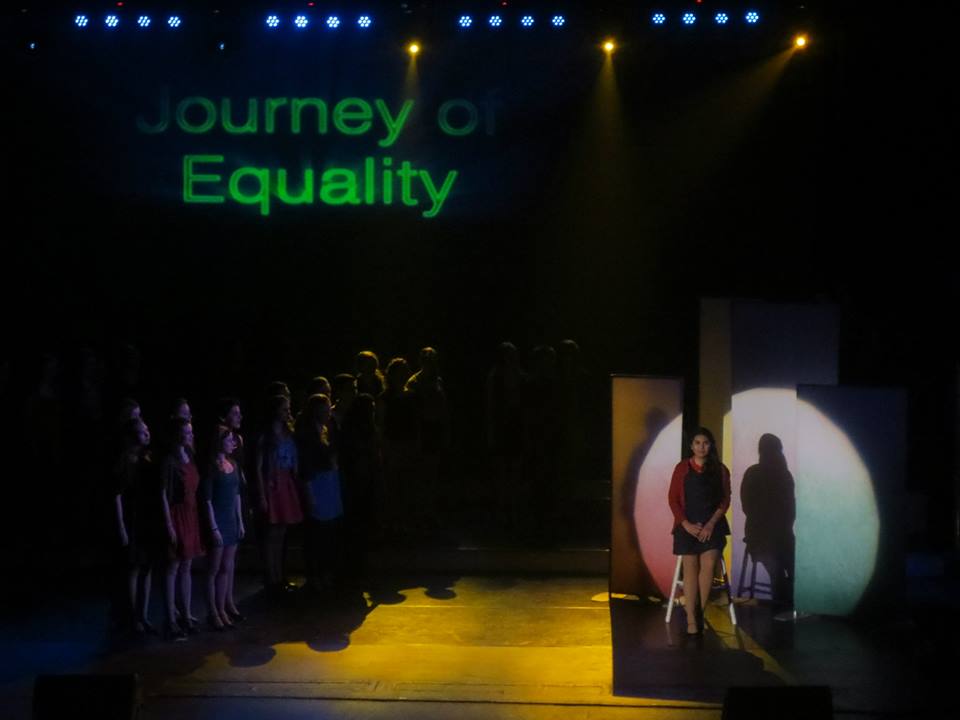
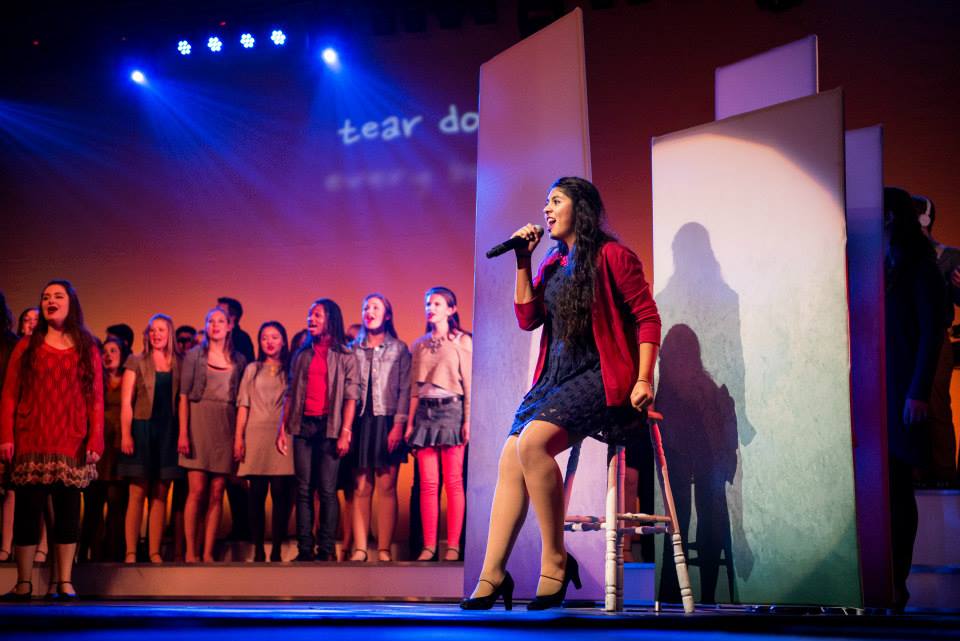
Impressive!!!!!!
Me gustaMe gusta